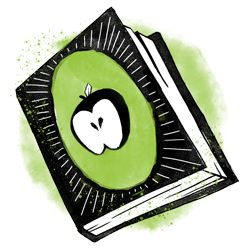Pure Food
Introduction
What is my version of pure food?

The most effective way to discover what suits us best is through experiential exploration. In this workbook, we encourage ourselves to delve into self-examination, connecting our bodily signals, emotions, and symptoms with our thoughts and behaviors.
In essence, when a particular emotion or sensation arises, how do we respond? What patterns have we developed when faced with these feelings? How can we reshape the sequence from emotion to thought to action to better align with our objectives? While diet books and websites offer insights, true understanding requires personal effort. We must embark on the journey of self-discovery and diligently document our findings.
Initially, we will assess our existing practices and subsequently establish guidelines to replace habits and routines that do not align with our goals.
In the realm of understanding food and its impact on the body, it's easy to get lost in scientific intricacies and overlook the fundamental question: How does what I consume affect how I feel?
Furthermore, information can be highly subjective and influenced by personal experiences, rendering facts almost irrelevant. When crafting our lifestyle, particularly in relation to food, our unique experiences take precedence.
Many of our lifestyle patterns are rooted in childhood; what we learned at a young age often shapes our present behavior because it feels comfortable, familiar, and innate. Stepping out of this comfort zone requires motivation, determination, and persistence.
At the core of our endeavors is the desire for ease, to avoid being defined by "dis"ease, and to feel at home in our own bodies. We aspire to possess bodies capable of fulfilling our needs and passions.
Identifying and understanding what is right for our unique selves is an ongoing, evolving process. Begin with the basics—whole foods like fruits and vegetables, simple recipes—and gradually build from there.
Different approaches yield results for different individuals, as everyone possesses distinct objectives, priorities, and lifelong practices. The importance is documenting our experiences throughout this course.
 Action
Action
Discovering valuable information and fostering a sense of connection with like-minded individuals can greatly enhance our journey toward balance and well-being. Here are steps to consider:
-
Build a Supportive Network: Seek out people, groups, or communities that resonate with your values and goals. These connections can offer support, guidance, and a sense of belonging.
-
Expand Your Knowledge: Read, listen, or watch documentaries, books, articles, and journals that align with your interests and aspirations. Continuous learning is a key to personal growth.
-
Organize Your Resources: Save or share valuable information in a place where you can easily access and reference it. This ensures that you have a repository of wisdom and insights at your fingertips.
-
Explore the Balance Course: In the balance section, review content and engage with individuals or resources that pique your curiosity and resonate with your pursuit of balance. This can provide fresh perspectives and ideas.
By actively seeking out supportive communities, expanding your knowledge, organizing your resources, and exploring content aligned with your goals, you can enrich your path toward balance and personal growth.
 Question
Question
When exploring and evaluating information, it's essential to engage in critical thinking and self-reflection. Here are some questions to guide your analysis:
-
Relevance: Is the advice or information relevant to my current circumstances and goals?
-
Personal Alignment: Does this advice resonate with my values, beliefs, and intuition? Does it feel like the right fit for me?
-
Information Completeness: Do I have all the necessary information to make an informed decision or judgment? Are there gaps in my understanding?
-
Adaptability: Can I adapt or modify the advice to better suit my unique situation and preferences?
-
Personal Experience: Have I personally experienced something different from what is suggested? Do I have insights or perspectives to add based on my own experiences?
-
Alternative Perspectives: Are there alternative sources or advice that I haven't explored yet? Are there different viewpoints or approaches worth considering?
-
Clarity and Understanding: Is there a clearer or more effective way to explain or interpret the information?




 Action
Action Question
Question